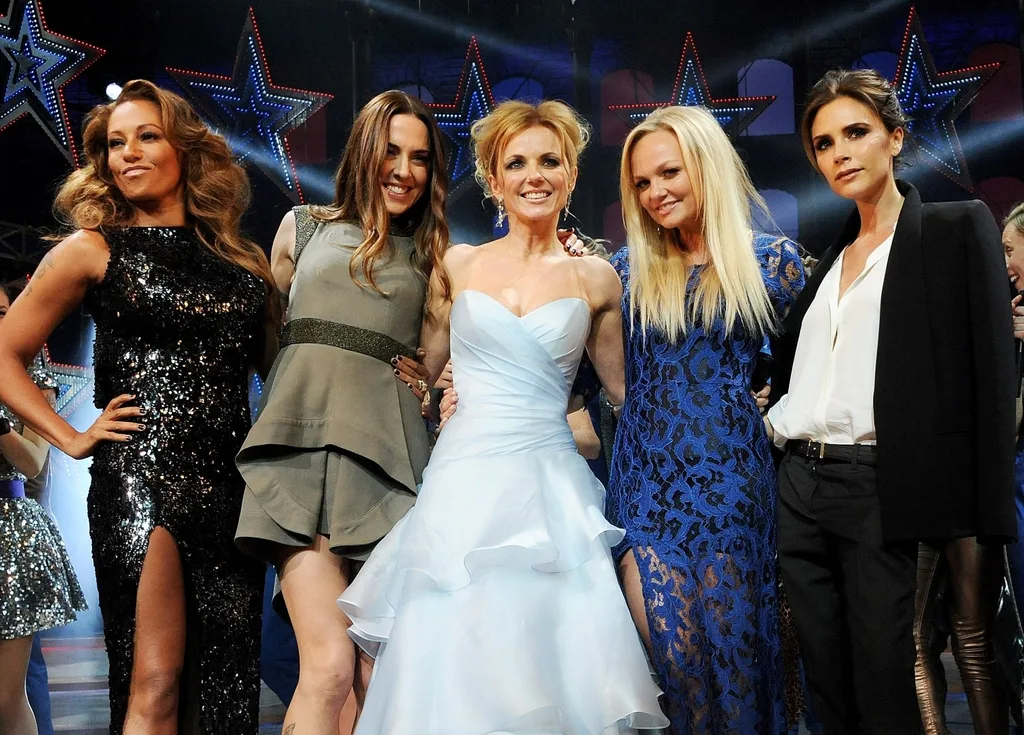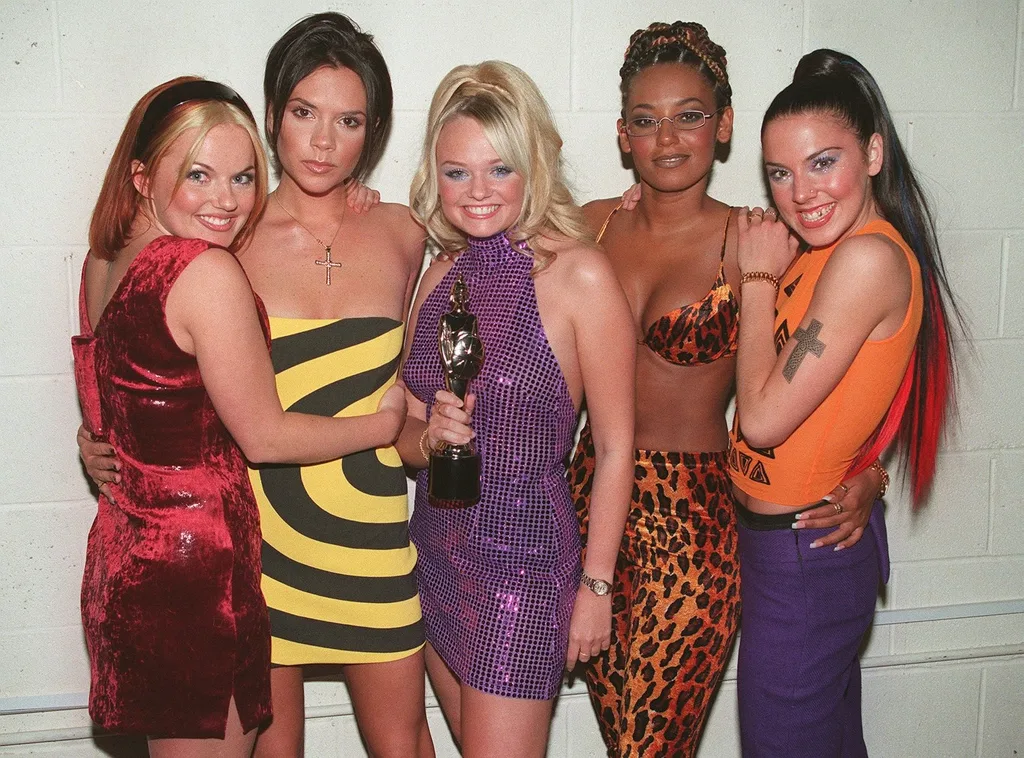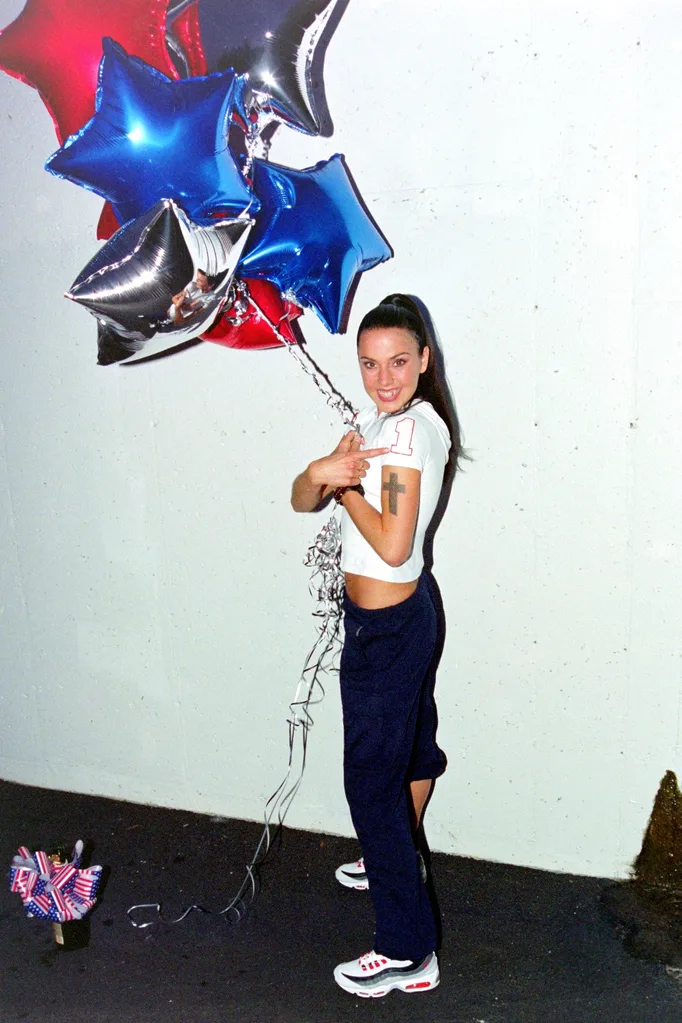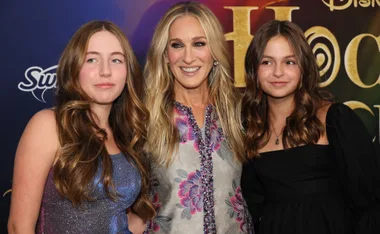Melanie C was 20 years old when she first discovered the power of words. During her time in the popular British girl group, the Spice Girls, Melanie gave weight to the words ‘Girl Power’, transforming it from a tagline into a global call for change. Plastered proudly on bedroom walls and carried on the lips of strangers, her words became an anthem of empowerment.
After leaving the group in 1998, Melanie once again leaned on the words in her lyrics to help her reshape the public narrative and forge a new path as a solo artist.
Now, almost 20 years on, Melanie has penned a new chapter, this time without a backing track, for her honest new memoir, Who I Am.
Here the artist and author tells marie claire how revisiting the highs and lows of her past has helped her find a way forward.

marie claire (mc): Why was now the time to tell your story?
Melanie: Telling my story is something I’ve always shied away from because I never felt ready. When we did the stadium shows in 2019, I started to reflect on the past differently. It was a turning point for me to recognise the incredible achievements we had as the Spice Girls, and compartmentalise that I can be both a Spice Girl and a solo artist and that I can do all of these things because they are all different aspects of me.
mc: What feels more exposing: putting out this book or releasing music?
Melanie: Definitely the book. I’ve been in the public eye since 1996, so I’m used to being exposed in certain aspects of my life, but I haven’t wanted to divulge any information about other people. That was a scary bit.

mc: Did you find the process of writing the book and revisiting your memories a cathartic or difficult experience?
Melanie: Revisiting certain parts of my life can be really difficult. I’ve had to relive and work through certain things through the process of writing. The hardest part was completing the audiobook and having to say some of those words out loud. On the flip side, reminiscing about all the really incredible times I’ve had made me realise how much I’ve achieved and also overcome.
mc: Hearing your voice back can also be very cringe.
Melanie: I’m just so used to it, but when I hear back Spice Girls interviews from the 90s, I’m like ‘why is my voice so high!’

mc: The Spice Girls were so massive, but your time in the group only really accounts for a short part of your life. How does it feel to have that be the reference point that everyone comes back to?
Melanie: It’s funny because even though it was those two years when there was the real ‘spice mania’, it’s still happening today. The Spice Girls are still a huge part of my life. There was a period of time when it used to frustrate me, while I was trying to establish myself as a solo artist. I was trying to figure out who I was as an individual without the rest of the band.
That was hard, I think I had a little bit of a rebellion against that. As I’ve gotten older, I have had to accept and appreciate that being a Spice Girl is what people know me for. It’s the thing that has enabled me to continue to have a career and do all the things that I’ve done. I’ve made peace with that now.

mc: A trope of a girl band is that each member is often branded with a different persona, how did that impact your sense of identity?
Melanie: Within the band, like any group of friends and especially being under that much pressure, there was definitely a dynamic of figuring out where you fit in. One of the hardest things to get to grips with was how you believe the world sees you.
The British media is pretty harsh and as a young person, trying to figure out who you are, and then being bombarded with these opinions about who you are, that’s really confusing.
mc: Did you feel a sense of disconnect between the public message of ‘Girl Power’ and the lack of empowerment you felt in private?
Melanie: Together the five of us felt pretty intimidating and we knew that. We knew we could walk into a really high-powered meeting with bosses of record labels or radio stations, and that we terrified people. We had really successful older men quaking in their boots. It was brilliant. We really revelled in that.
We like to ruffle feathers, we like to cause chaos. Looking back, sometimes we talk about it and say, ‘gosh, we were a bit immature’ and ‘that was a bit over the top.’ Although, when something needs to change, you have to go a little bit over the top in your actions to get the attention to help make the change.

mc: Your faces were on everything from body sprays to chocolate bars, bedding to toothbrushes. How do you feel in retrospect about the mass commercialisation of your identity?
Melanie: With hindsight, I feel quite proud of it. It was groundbreaking and it changed the world of celebrity. That said, it was complete overkill and it was probably the biggest contributing factor to us leaving Simon Fuller (who was the group’s former manager) because we felt that the emphasis had been taken away from the music. We’d had enough and we just felt like it was diluting what we did as a band.
mc: Do you think that the things you endured at the time, including certain lines of questioning, would happen now?
Melanie: We live in very different times, people have so much more awareness. Younger people are so much more forthright with their feelings. Things have definitely changed, but I don’t think they’ve changed enough.
In the UK, tabloid media can still be quite misogynistic. It’s shocking to look back on the way that we were written about as women and the way we were treated and questioned on the biggest and most respected chat shows in the UK. I remember Victoria being asked if she had an eating disorder.
This footage came out on social media from when we were on set of a shoot. And the director was telling Mel B to undo another button on her shirt and we gave him hell!
So, on one hand, we were standing up for women, we had our ‘girl power’ message, and we weren’t going to be messed with. Then on the other hand, people were being asked to weigh themselves on TV. It was a crazy time, and thank goodness we had the opportunity to help move the dial with things like that.

mc: What was a moment in the book that was hardest to revisit?
Melanie: My personal issues. Dealing with depression and eating disorders, and the sadness attached to that. I have lived my absolute wildest childhood dreams and fantasies and through a really successful phase of that I was at my lowest point personally and emotionally, with my mental health. That was hard to revist, but it’s also been the most important part of the book for me. It’s fun to reminisce about all the fun Spice Girls moments, but I want this book to matter. I want people to find strength or just even some companionship from this book, because I know how lonely it is to go through those things.
mc: Is there one moment during your time in the Spice Girls that stands out as your happiest memory from that experience?
Melanie: I think those early days when we were just so full of ambition, determination and excited about the unknown. We were signing the record deal, making the album, doing the first video shoots and photoshoots. That’s the time that I look back on most fondly.

mc: Has your daughter read your memoir?
Melanie: [Laughs] No, she hasn’t. I’m sure she’ll read it at some point. I have a very open relationship with my daughter. I talk to her about all the things that I’ve been through, but there are certain things that I’ve been candid about in the book that before it goes out into the world I want to give her a little an opportunity to hear it from me, rather than anybody else.
mc: What message do you hope that your daughter and other young girls and women take from it?
Melanie: I want to try and stop some of the pain that we go through. As women we are internally cruel to ourselves and I think it’s so detrimental. You have to put yourself first. It’s taken me over 40 years to get to that point. At the end of the day, we all have the same insecurities and we share so many things. For me as a performer, what I really enjoy is a connection with people. To inspire or have people feel like they have something in common with you. I think it’s it’s a real gift.

Pick up a copy of ‘Who I Am’, Welbeck Publishing Group, $32.99 now.










